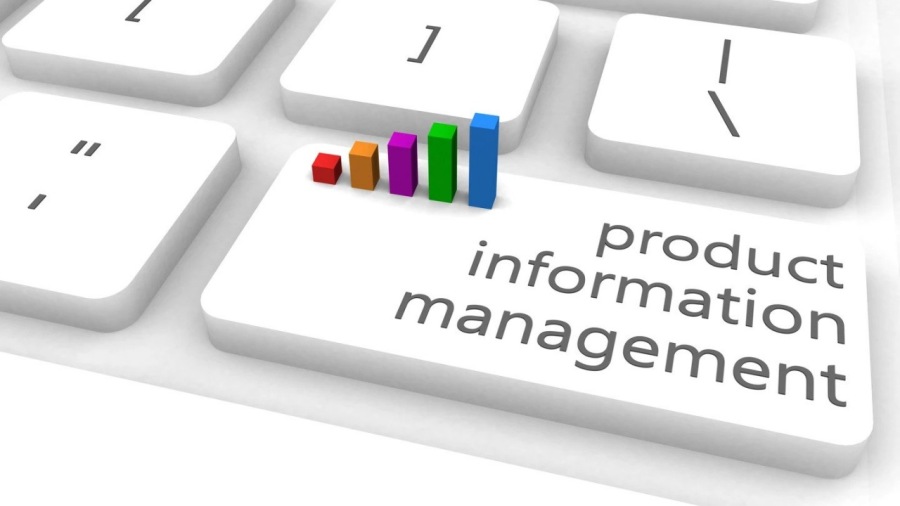5 Signs Your Enterprise Needs a Robust PIM Platform
Today, accurate and consistent product data drives sales and generates revenue. It also adds value to customer experience and plays an essential role in the final purchase decision of the customer. A good product with poorly distributed information about its features, configuration, and/or data component can be easily overlooked. Be it an eCommerce platform or a brick and mortar shop; managing product data has become mandatory in present times.

Organizations still dependent on traditional means of handling product information must transform their systems across the value chain – from supply chain to commerce to customers. They must do it not only to break into new markets and offer superior product experiences, but to increase overall conversion, enable omnichannel marketing, and decrease time-to-market.
Here are certain telltale signs which indicate that an organization is in dire need of a product information management (PIM) solution:
1. Whose data is the ‘right data’?
A major shortcoming of working with legacy product data management systems (typically spreadsheets) is the lack of synchronized consolidation. In an extended value chain encompassing suppliers, partners, employees, and other external entities, product information is bound to be altered by various individuals at various points of time. With no centralized platform in place, often a miscommunication between disparate touchpoints is likely to happen. For instance, when one employee emails a spreadsheet containing product-specific data to another employee and they simultaneously make changes to it, the latest updated file with both inputs is often lost in the transaction.
This is what leads to inconsistent, obsolete, and inaccurate product information.
Related Resource: Replacing Legacy Product Information Management (PIM) System
2. Employees are always busy monitoring product data
The long-term impact of failing to manage product information directly hits the workforce efficiency. Since data is used by multiple systems in multiple locations and amongst siloed departments, even the loss of one ‘unit’ of information can cause huge chaos. And what could be worse than using unclean data? Any company that has dealt with tight product launches knows the impact of having a product in the market with discrepancies in information about it. Your entire rapport with the customers is on the line if inaccurate information reaches them. As a responsible organization, you must avoid such a situation at any cost. For this, your employees must monitor, track, and record all data transactions and filter out dirty data painstakingly.
This tedious job can be enough to overload your employees and hinder their productivity. Additionally, with more products and even more product-related data, setbacks like these can exhaust your workforce’s time and energy, leading to loss of revenue. Continuous data monitoring might result in employees deviating from their core jobs, and the impact will be visible in your profit charts.
3. Customer support ceaselessly brims with complaints
The manual process of updating spreadsheets at multiple touchpoints is prone to human errors and other unavoidable inaccuracies. The outcome is incorrect product information being disseminated to the customers. The impact, however, is the same in both cases – unhappy customers, poor customer experience (CX), bad feedback, and stacks of complains.
The error can originate from anywhere in the value chain and in any form – it can occur due to old, not updated, expired, or outright wrong data. Inconsistencies in stock-keeping units (SKUs) can be the root cause for minor discrepancies to major blunders in ordering. From inventory management, to order placement, to order processing and ultimately delivery, if you are unable to govern and check data quality at every step, you will not be able to convert potential customers smoothly – or worse, lose the existing ones.
4. Analytics never gets it right
Information and data are the strategic assets of a firm. As a result, unorganized, dirty, and inaccurate data is never healthy for the workflows of any organization. If not identified and rectified at an early stage, data that is erroneous, misleading, and without general formatting can cause serious issues. Unfortunately, no industry, organization, or department is immune to the chances of dealing with bad data.
The relationship between data quality and decision accuracy is tightly knit and quite intricate. It especially affects the departments who are instrumental in strategizing moves and deriving insights from the collated data. Management heavily relies on analytics and data usage to draw business acumen and decide on the required course of action. That’s because, wrong data will never point you in the right direction; in-fact it renders the entire analytics futile, contributing directly to failing profits. Be it prescriptive analysis of historical customer data, buying patterns, cost breakdown, and product catalogs or predictive analysis–correct data is the lifeblood of accurate analysis.
5. It is chaotic to manage data across multiple geographies
Data management might not seem too big of an issue when managing a small business with limited data resources spread across reachable locations. However, with warehouse expansions, as your enterprise products grow, more information starts getting processed throughout the systems. And when you are functioning across multiple regions, geographies, marketplaces, and storefronts, it can be a tedious task to manage a large number of products, with different SKUs.
It can be especially challenging for marketing and sales teams who deal directly with third-party clients and direct customers. Product data inputs come from multiple suppliers. Any updates in the attributes, quality, or orientation need to be consistent throughout the commerce channels. Organizations that can efficiently and dynamically manage all data, helps you secure a clear competitive advantage over others in the fray.
The volume and speed of data generation and consumption has increased many folds in a relatively small period. In the age of digital transformation where high-quality, accurate, standardized, and properly formatted data is a necessity for competitive retailers and manufacturers – user-friendly and scalable PIM solutions have become an essential tool for most businesses. PIM is a centralized software platform used to store and manage data related to descriptions, SKU numbers, pricing, images, and much more from a variety of channels.
If you feel that your business is at a stage where product content marketing, data handling, or catalog representation needs professional help of a dedicated tool, it is time to try your hands at PIM.
This post has been previously published on Pimcore.
Artikel von Rahul Singh
Blog ansehen
Open-source PIM software offers multitudes of other benefits, which goes a long way in helping busin ...

A decade ago, an organization could have just created an online store, displayed its catalogue on th ...

With Content-as-a-Service (CaaS) model in place, enterprises can ensure that relevant content is del ...
Diese Stellen könnten Sie interessieren
-
Verkaufsberater (m/w/d) Für Iqos (inkl. E-auto)
Gefunden in: Jobs Search AT C2 - vor 2 Tagen
Globe Personal Services Gmbh Austria, Österreich GanztagsWir suchen einen Verkaufsberater (m/w/d) - Vollzeit Philip Morris International ist Markt- und Technologieführer bei rauchfreien Tabakprodukten. · Innovation, kontinuierliche Weiterentwicklung, flache Hierarchien sowie eine moderne Start-Up Mentalität zeichnen den global agierend ...
-
Lehrling Einzelhandel
Gefunden in: Adzuna AT C2 - vor 2 Tagen
C & A Mode GmbH & Co Dornbirn, ÖsterreichFILIALE DORNBIRN · C&A · begrüßt jeden Tag mehr als 2 Millionen Kund:innen in seinen Stores in Europa und in seinem Online-Shop · bietet qualitativ hochwertige und langlebige Mode und das zu erschwinglichen Preisen · ist mit über 1.300 Stores in 17 europäischen Ländern und mehr a ...
-

Einkaufsassistent (m/w/d) Möbel - In 3 Minuten erfolgreich bewerben
Gefunden in: Hokify D AT C2 - vor 20 Stunden
Leiner Sankt Pölten, Österreich GanztagsBereich · ------- · Einkauf, Möbelbereich · Ihr Profil · * Abgeschlossene kaufmännische Ausbildung (Lehre, HAK) · * Min. 2 J. Erfahrung im Einkauf und Verkauf (internationaler Einzelhandel), in ähnlicher Position · * Selbständige Arbeitsweise · * Stressresistent · * Engagier ...


Kommentare